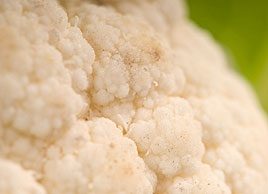Prostate cancer: How diet and lifestyle can reduce his risk
Getting screened is important. So is taking a few easy measures to prevent prostate cancer, the most common cancer in men

Source: Best Health Magazine, November/December 2008
Prostate cancer’the most common cancer in men’will be diagnosed in about 24,700 Canadians over the course of 2008, and more than 4,000 men will die of it. ‘Prostate cancer is a silent killer,’ says Dr. Pierre Karakiewicz, a urologic oncologist at the University of Montreal Health Centre.
Prostate cancer is asymptomatic’at first
Early prostate cancer has no symptoms, and later symptoms, such as difficulty urinating and pain during orgasm, are also associated with common, non-cancerous changes to the prostate with age. So the best defence against prostate cancer is screening. The Canadian Cancer Society recommends that men over the age of 50 talk to their doctor about getting tested for prostate cancer, including the possibility of a prostate-specific antigen blood test (often called a PSA test). (Men who are at a higher risk, such as those with a family history of the disease, may want to begin testing earlier.)
Early treatment of prostate cancer, which can involve surgery or radiation therapy, is often successful, but prevention is also important. So start by encouraging the men in your life’no matter what their age’to eat a balanced diet and quit smoking, both of which will help lower the risk, according to experts. Men can also take the following easy measures, which are based on recent research.
Latest prostate cancer prevention advice
A diet rich in vegetables and low in saturated fat may slow the progression of prostate cancer. That’s what researcher Susan Berkow of George Mason University in Fairfax, Va., found in a 2007 review of 17 nutritional studies. ‘We concluded that a plant-based diet is probably a prudent choice,’ says Berkow. The best fare: brassica vegetables such as broccoli, cauliflower, cabbage and Brussels sprouts. The mineral selenium, which is abundant in whole grains, seafood, tomatoes and nuts, may also protect against prostate cancer.
A major Harvard study tracked more than 33,000 men between ages 40 and 75 over six years, and found that the men with the highest selenium levels had a 65 percent lower incidence of advanced prostate cancer than the men with the lowest levels. Another major clinical trial is underway to test the effects of selenium, as well as vitamin E, on prostate cancer prevention.
Men who keep their weight in check can reduce their risk, too. A study published this year in the journal Cancer Causes Control found that men with physically active jobs had a 45 percent lower risk than men who were sedentary at work. Research has also shown that obese men have a higher risk of recurrence after treatment with radiation. So if your guy is rooted to a computer during the week, he should compensate by going to the gym, walking to work and getting active on weekends.
Finally, a study from The Cancer Council Victoria in Melbourne, Australia, found that men who ejaculated more than five times a week starting in their 20s had a one-third lower risk for prostate cancer; ejaculating at later ages reduced risk, too. ‘The protective effect [of sexual intercourse or masturbation] might be due to keeping the ducts cleared of secretions,’ says lead researcher Graham Giles.
This article was originally titled "Prostate Health," in the November/December 2008 issue of Best Health Magazine. Subscribe today and never miss an issue!




